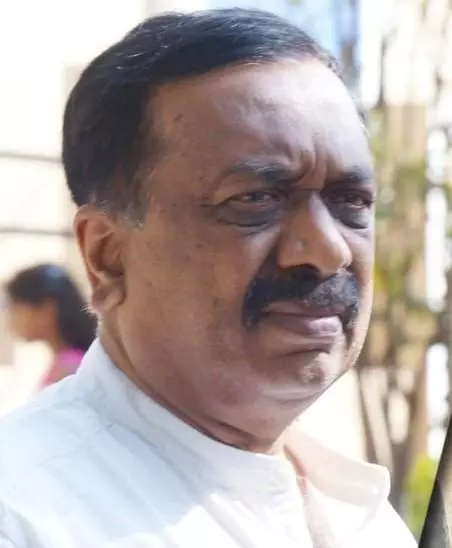
Creamy Layer: A Ploy to Scuttle Reservations
text_fieldsAdvocate Dwarkanath explains reservation and its importance in Indian society where most of its inhabitants were denied basic rights for centuries. He explains (in Q&A format) why the constitution guaranteed reservation for those who were victims of caste discrimination and its validity when questions are being raised on the very soul of the Indian constitution by the upper caste.
Q: What exactly is the reservation?
The word reservation is a misnomer. The appropriate word for it used in the Indian constitution is 'Representation'. It is not given to anyone in his individual capacity. It is given to an individual as a representative of the underprivileged community. The beneficiaries of reservations are in turn expected to help their communities to come up.
Q: Why reservation?
The policy of reservations is being used as a strategy to overcome discrimination and act as a compensatory exercise. A large section of the society was historically denied the right to property, education, business, and civil rights because of the untouchability practiced in society. In order to compensate for the historical denial and have safeguards against discrimination, we have the reservation policy.
Q: Were Reservations incorporated by the founding fathers of the constitution only for the first 10 years?
Only the political reservations (seats reserved in Loksabha, Vidhansabha, etc) were to be reserved for ten years and the policy review was to be made after that. That is why after every ten years the parliament extends political reservations. The ten-year cap for reservations is not true for the reservations in education and employment. The reservations in educational institutions and in employment are never given an extension as it is given for
Q: Why give reservations on the basis of caste?
To answer this question, we must first understand why the need for the reservations was popped up during the process. The cause for the various disabilities that the underprivileged castes in India face/have faced, is the systemic historical subjugation of a massive magnitude based on the caste system having a religious sanction. Therefore, if the caste system was the prime cause of all the disabilities, injustice, and inequalities that the Dalit-Bahujans suffered, then to overcome these disabilities the solution has to be designed on the basis of caste only.
Q: Why not based on economic criterion?
Reservations should never be based on economic status for various reasons as follows:
- The poverty prevailing among the Dalit-Bahujans has its genesis in the social-religious deprivations based on the caste system. Therefore poverty is an effect and the caste system a cause. The solution should strike at the cause and not the effect
- An individual's Economic status can change. Low income may be taken to mean poverty. But the purchasing value of money, in India, depends upon caste. For example, a Dalit can not buy a cup of tea even in some places.
- Practical difficulties in proving the economic status of individuals to the state machinery are many. The weak may suffer.
- In caste-ridden India infested with rampant corruption, even for an unchangeable status like caste, the false "Caste Certificate" can be purchased. How much easier will it be to purchase a false "Income Certificate"? So income-based reservation is impractical. It is no use arguing when both certificates can be bought, why caste only should form the basis of reservation. It is more difficult to buy a false caste certificate than a false income certificate.
- Reservation is not an end in itself. It is a means to an end. The primary aim is to achieve active participation and sharing by the "socially excluded" humanity in all the fields of the affairs of the society. It is no panacea for all ills, neither it is permanent. It would be a temporary measure till such time the matrimonial advertisements in newspaper columns continue to contain the mention of caste.
Q: Should there be a creamy layer criterion or not?
The demand from anti-reservationists for the introduction of the creamy layer is a ploy to scuttle the whole effectiveness of reservations. Even now out of all seats meant for SC/STs in IITs, 25-40 percent seats remain vacant because it seems IITs do not find suitable candidates. Just imagine what would happen if by applying the creamy layer criterion the SC/ST middle class, lower-middle-class people who are in a position to take decent education are excluded from reservations benefit! Will the poor among SC/STs be able to compete with these 'privileged 'students' trained in prestigious institutions and at various IIT-JEE training centers at Kota? Not. This will lead to 100 percent seats in IITs for SC/STs going vacant.
Q: How long should the reservations continue?
The answer to this question lies with the anti-reservationists. It depends on how sincerely and effectively the policymakers which constitute "privileged castes" people in executive, judiciary, and legislature implement the reservations policy. Is it just on part of "privileged castes" people who have enjoyed undeclared exclusive reservations for the past 3000 years and continue to enjoy the same even in the 21st century in all religious institutions and places of worship, to ask for the timelines for reservations policy? Why don't they ask how long the exclusive reservations for a particular community in the religious institutions and places of worship are going to continue? The people who have acquired disabilities because of inhuman subjugation for 3000 years will need substantial time to come over those disabilities. 50 years of affirmative action is nothing as compared to 3000 years of subjugation.
Q: Will, not the reservations based on castes lead to divisions in the society?
There are apprehensions that reservations will lead to divisions in society. These apprehensions are irrational. The society is already divided based on different castes. On the contrary, reservations will help in annihilating the caste system. There are around 5000 castes among the SC/ST and OBCs. By grouping these various castes under 3 broad categories of SC, ST, and OBC, the differences among 5000 separate castes can be abridged. This is the best way of annihilation of castes. Therefore, rather than making rhetoric about reservations leading to divisions in the society, the anti-reservationists should make sincere efforts to annihilate castes. Have these people made any efforts towards this direction? In most cases, the answer is NO. The people making this anti-reservations rhetoric, all this time have been enjoying all the privileges that the Indian caste system offers to the "Privileged Castes". As long as they enjoy the privileges of the caste system they do not have any qualms regarding it. But when it comes to making castes as the basis for achieving social equality by providing representations these same people make noises. These are the double standards of the highest order practiced by the 'privileged' people.
Q: Will it affect the merit?
As regards how Merit is defined in a very narrow sense and what it means, the following is the quote from an article by Prof Rahul Barman of IIT Kanpur. "Is merit all about passing exams? After all, are the exams a means or an end? If the exams are means to look for the ability to make better engineers, doctors, and managers, then can there be better methods to look for such ability? After all, in my first engineering class, I was told that a good engineer is the one who can produce the best out of the least resources, and similarly, management is supposed to find one's way in an uncertain situation – or allocate scarce resources in the most optimal way possible. If that is so, whatever I have seen of our deprived masses (of which the overwhelming majority belongs to the backward, Dalit castes or Adivasis), they have the astonishing capacity to make something productive from almost next to nothing! For the last few years, I have been studying small industry clusters, like Moradabad brass, Varanasi silk, and Kanpur leather. Put together (all the clusters in the country), they are exporting more than the IT sector and their cumulative employment will be several times the whole of the IT industry. In all these clusters they operate with minuscule resources – small investment, no electricity, forget about air-conditioning, nonexistent roads, lack of water, and little formal education. These clusters are primarily constituted of these so-called backward/ Dalit castes and are truly a tribute to the genius that our society is. But in spite of centuries of excellence these communities have hardly produced any formal 'engineers', 'doctors', and 'managers', and conversely these elite institutions have not developed any linkages with such industries and their people. "
Reservations of over 60 percent have existed in the 4 states of southern India and around 40 percent in Maharashtra for the last 50 years. On other hand in the north Indian states the 15 percent 'privileged castes' have been enjoying 77 percent of the seats in educational institutions and in employment (assuming that 23 percent reservations for SC/STs are totally filled, which is not the case). The World Bank study has found that all the 4 south Indian states are much ahead of north Indian states in terms of their human development index. It is a known factor that southern states and Maharastra are ahead of North Indian states in education, health, industrial development, and in implementing poverty, alleviation schemes, etc. This shows that reservations have helped the southern Indian states in making progress on various fronts. Whereas lack of adequate reservations is responsible for the lack of development in most of the north Indian states.
Q: Have existing reservations for SC/STs been effective or not?
The reservation policy in the public sector has benefited many people. The Central government alone has 14 lakh employees. The proportion of Scheduled castes in class III and IV is well above the quota of 16 percent, and in-class I and II, the proportion is around 8–12 percent. So, the middle and the lower middle class that we see today from the Dalit community is because of reservation. With no reservation, the entry of these people in government services would have been doubtful. The situation is similar in education. An article in the EPW (Economic and Political Weekly) estimates that there are seven lakh SC /ST students in higher education and about half of them are there because of reservation. Reservation has helped, but there are limitations in any policy the way they implement it.
(Adv. Dwarakanath Chokka is an activist and Former Chairmen of the Karnataka State Commission for Backward Classes. He is an Advocate at the High Court of Karnataka)






















